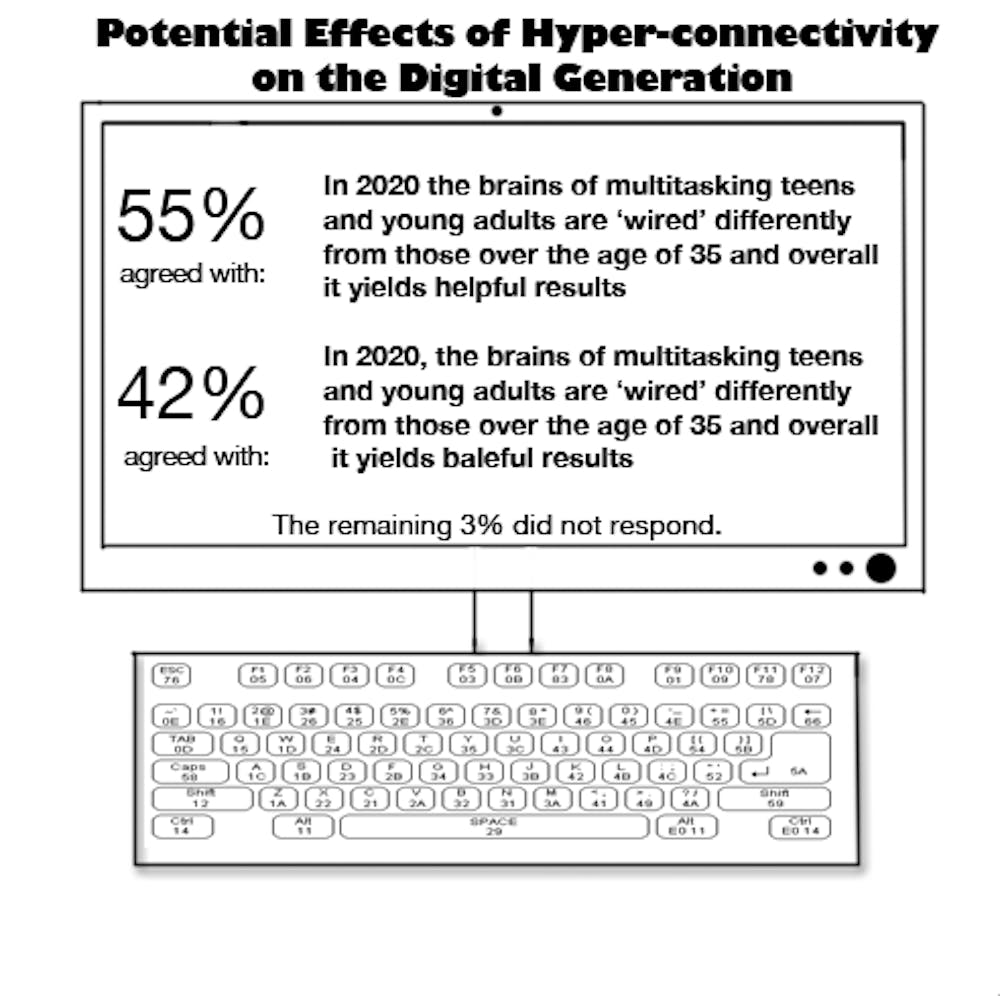A recent study fielded by Janna Anderson, director of Elon University’s Imagining the Internet Center and Lee Rainie, director of the Pew Research Center’s Internet & American Life Project, surveyed more than 1,000 Internet experts and users on the potential effects of hyper-connectivity on the digital generation.
Participants had to choose between two opposite statements and were later allowed to qualify their responses.
Fifty-five percent agreed with the following statement:
“In 2020 the brains of multitasking teens and young adults are ‘wired’ differently from those over the age of 35 and overall it yields helpful results. They do not suffer notable cognitive shortcomings as they multitask and cycle quickly through personal and work-related tasks. Rather, they are learning more and they are adept at finding answers to deep questions, in part because they can search effectively and access collective intelligence via the Internet. In sum, the changes in learning behavior and cognition among the young generally produce positive outcomes.”
Forty-two percent agreed with the opposite assertion, which stated:
“In 2020, the brains of multitasking teens and young adults are ‘wired’ differently from those over the age of 35 and overall it yields baleful results. They do not retain information; they spend most of their energy sharing short social messages, being entertained, and being distracted away from deep engagement with people and knowledge. They lack deep-thinking capabilities; they lack face-to-face social skills; they depend in unhealthy ways on the Internet and mobile devices to function. In sum, the changes in behavior and cognition amount the young are generally negative outcomes.”
The remaining three percent did not respond.
Participants were then prompted to elaborate on their choices and explain any “shades of grey” that might alter their responses. Predictions about what personal and intellectual skills will be most highly valued in 2020 were also encouraged.
Responses were gathered from leaders in various technology-centric industries and university programs. Participants posited both negative and positive predictions, and many were ambivalent.
Optimistic responses often suggested that the internalization of digital technology is a “positive step in human evolution” and may foster improved collaboration in a more communicative environment.
The opposite stance foresees an increased need for instant gratification as well as a loss of patience and focus. Many participants lamented a potential loss of critical thinking ability and “stagnation in innovation.”
Others questioned the possibility of “multitasking.” Some argued that the effects of hyper-connectivity, detrimental or otherwise, are not limited to the younger generation. Others still claimed that it is too early to forecast future trends.
Expectations regarding the most valuable skills of 2020 concurred more frequently than the more abstract predictions. “Internet literacy,” or the ability to sift through large amounts of information effectively, was often mentioned. Many participants agreed that the abilities to synthesize information, think critically and collaborate will be of high importance come 2020.


